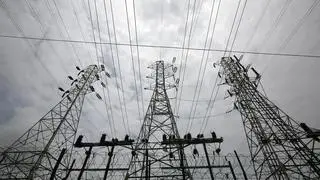According to some reports, efforts are on to float a mortgage guarantee company, and the National Housing Bank is taking the lead in it. The proposed new company will be a joint venture consisting of Genworth Financial International Holdings, a unit of US-based Genworth Financial Inc, Asian Development Bank and International Finance Corp.
The idea seems to be to provide a fillip to housing finance by covering the portfolio under some sort of insurance so that housing finance institutions may increase lending. Housing finance institutions may lend freely without much bother about default or locked up funds.
Choice or compulsion?
It is not clear whether the financing institutions will have the option to cover their housing-loan portfolio under the scheme or it will be compulsory.
In India, housing loans are given after an appraisal of the credit proposal. Broad norms have been suggested/prescribed by the National Housing Bank/Reserve Bank of India. Though valuation of the housing property is taken into account to decide the quantum of loan, repaying capacity of the borrower is also considered. This is based on the person's earnings and maintenance expenditure. A prescribed percentage of take-home pay is also stipulated. A margin of around 20 per cent is always prescribed and only 80 per cent of the value is granted as loan. Stamp charges and other statutory charges are to be borne by the borrower. Hence, banks expect the borrower to repay the loan out of his earnings and in the extreme case of a default, they try to recover the amount by selling the housing property.
Whenever there is a default, banks are empowered to take over the mortgaged property and realise the amount under the Securitisation and Reconstruction of Financial Assets and Enforcement of Security Interest Act, 2002.
Priority Sector loans
Interestingly, default under the housing loan category is more for smaller loans. For loans of Rs 2 to 5 lakh, the percentage of non-performing assets is 4.84; for Rs 5 lakh to 10 lakh, 3.68; whereas for above Rs 25 lakh, it is 1.56. A housing loan under Rs 2 lakh has become a part of the priority sector advances and hence, it can be covered by the Deposit Insurance and Credit Guarantee Corporation.
In these circumstances, one fails to understand the need for a housing mortgage company, that too with public money through the National Housing Bank.
The borrower's account will be charged for the premium payable to the mortgage guarantee organisation. Hence, under the mortgage guarantee, it will be the non-defaulting borrower who has to foot the bill, which will be used to settle the amount due from defaulters. Some have argued that mortgage guarantee will make available more housing finance at lower interest rates. But that does not seem to be true.
(The author is a retired banker.)







Comments
Comments have to be in English, and in full sentences. They cannot be abusive or personal. Please abide by our community guidelines for posting your comments.
We have migrated to a new commenting platform. If you are already a registered user of TheHindu Businessline and logged in, you may continue to engage with our articles. If you do not have an account please register and login to post comments. Users can access their older comments by logging into their accounts on Vuukle.